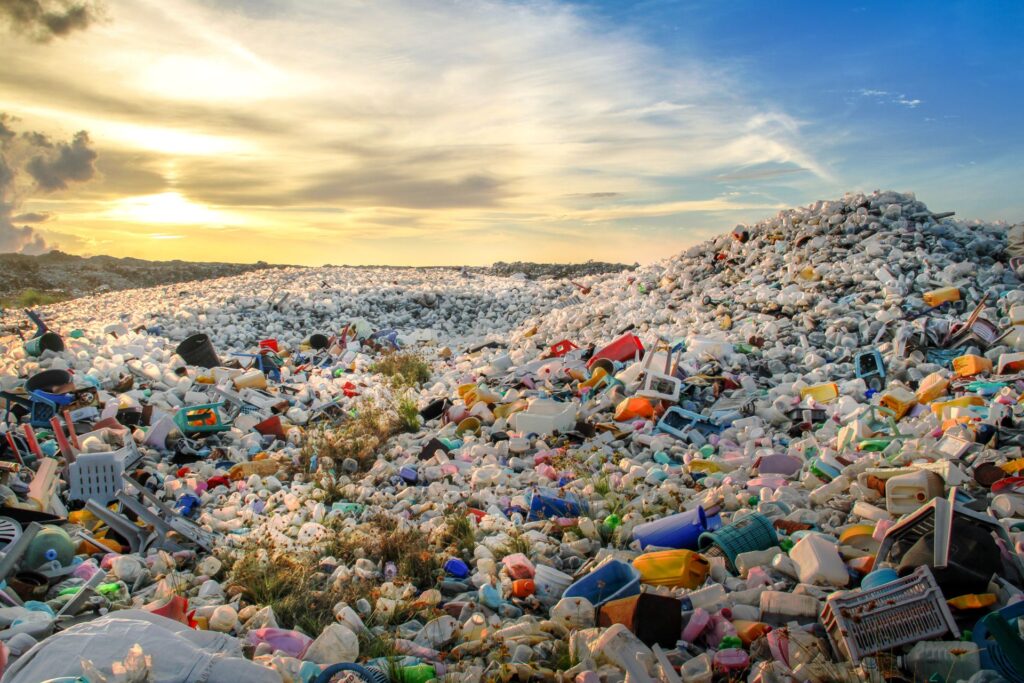Recycling in America: Critical Policy Shifts Needed for $6.5 Billion Savings, Ball Corporation Reports

023 “50 States of Recycling” report highlights the need for more accurate data, policy and infrastructure investment to improve statewide recycling rates.
Eunomia Research & Consulting and Ball Corporation released an updated “50 States of Recycling” report, building on the original, first-of-its-kind state-by-state comparable assessment of common packaging materials by using data on generation, recycling and disposal rates from across the United States. Key findings include:
- 9 of the 10 states with the highest recycling rates have Recycling Refunds (also known as bottle bills or Deposit Return Systems).
- While states with Recycling Refunds only account for 27% of the U.S. population, they account for 47% of all packaging recycled, 51% of all aluminum cans and glass bottles recycled and 61% of all PET bottles recycled.
- States with Recycling Refunds recycle 34% of packaging, excluding fibers and flexible plastics (FFP), through closed-loop end markets (i.e., can-to-can or bottle-to-bottle) compared to 7% for non-Recycling Refund states.
- Nationally, the value of material diverted from landfills is $2.6 billion, which only represents 32% of the value that could be captured annually.
- There is around $6.5 billion worth of material that is lost to landfill annually that could be captured through more effective recycling practices.
Since the last iteration of the “50 States of Recycling” report, overall recycling rates across the country have stagnated or declined. Several factors contributed to these declines, including pandemic-related shutdowns at many recycling centers. Currently, the U.S. recycles just 45.2% of aluminum cans. Getting that recycling rate closer to 90% by 2030 would create opportunities to reduce greenhouse gas emissions (GHG) – in 2021, 79 million MTCO2e of GHG emissions were avoided through recycling, comparable to removing more than 17 million vehicles from the roads – and grow our economy.
The updated report ranks U.S. states by recycling rates while also examining the benefits of implementing policies such as Recycling Refunds, and Extended Producer Responsibility (EPR), which holds producers responsible for product management through the product’s lifecycle. When the two policies are enacted alongside one another, the report found that states achieve higher recycling rates, maximize closed-loop recycling (i.e. bottle-to-bottle and can-to-can) and thereby deliver the best social, environmental and economic outcomes for the U.S.
“The recycling rates in our report represent the real recycling—versus collection—rate, meaning this rate is not what is collected for recycling, but rather what is available to be made into new products. Recycling rates in many states are still measured in terms of what is collected for recycling, so to enable a ‘like for like’ comparison between states, the collection rates have been adjusted to show the real recycling rate. Having a true assessment of recycling rates will better enable us to understand what policy and program measures are needed to capture more quality material, increasing circularity, reducing our need for virgin materials and thus helping protect the planet,” said Sarah Edwards, Director, Eunomia North America.
The 10 states with the highest recycling rates (excluding FFP) in 2021 include: Maine (65%); Vermont (51%); Massachusetts (48%); Iowa (45%); Oregon (45%); New York (44%); California (41%); Michigan (40%); New Jersey (39%); and Connecticut (39%).
The 10 states with the lowest recycling rates (excluding FFP) in 2021 include: West Virginia (2%); Louisiana (4%); Tennessee (5%); Alaska (6%); South Carolina (6%); Mississippi (6%); Oklahoma (8%); Alabama (8%); Texas (8%); and Colorado (11%).
When expressed as a monetary benefit, the total economic value of recycling in the U.S. is approximately $35 billion, accounting for gross value, employment income from recycling-related jobs and greenhouse gas impact reduction – comparable to removing more than 17 million vehicles from the roads. If effective recycling policies were enacted nationwide, such as pairing Extended Producer Policy alongside Recycling Refunds, the benefit of recycling would double to $70 billion annually.
“Many consumers want to, and think they are, doing the right thing when they put their can or bottle in the recycle bin. However, collection does not equal real recycling. Creating a true closed-loop system — where a can becomes a can, or a bottle becomes a bottle — will require a well-designed recycling policy that creates compelling incentives to recycle and expand recycling infrastructure and systems to ensure the process is simple, convenient and affordable for everyone,” said Daniel W. Fisher, Chairman and CEO, Ball Corporation.
Related Article: Li-Cycle Receives $375 Million from the U.S. DOE for New York Recycling Plant
As policymakers and stakeholders from across the supply chain work together to enact meaningful policies and develop effective recycling programs, the “50 States of Recycling” report should serve as a resource for developing beneficial programs for the future. How the next generation of recycling systems is designed matters, and smart policies and programs that work together are essential to deliver the best outcomes in the U.S.












